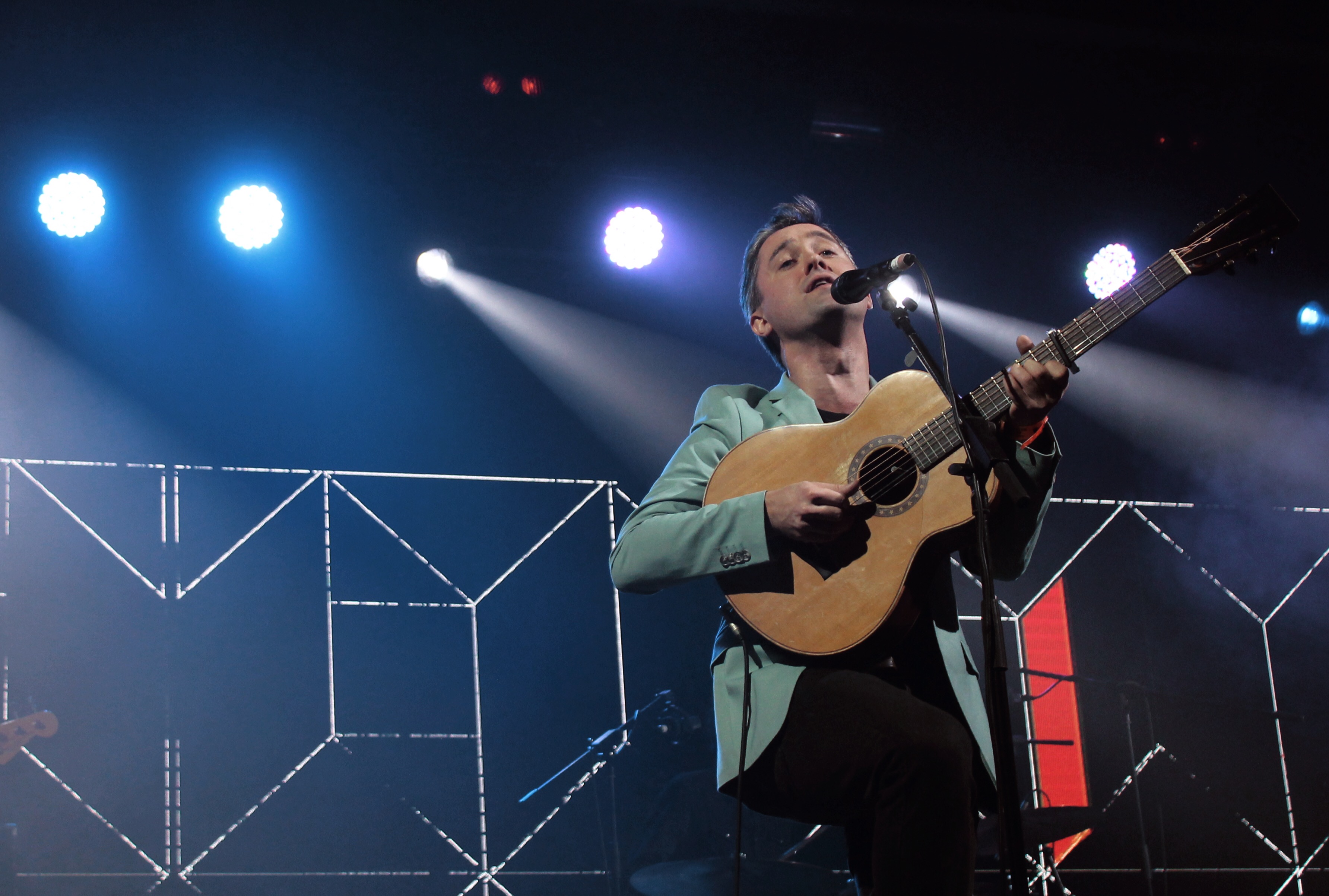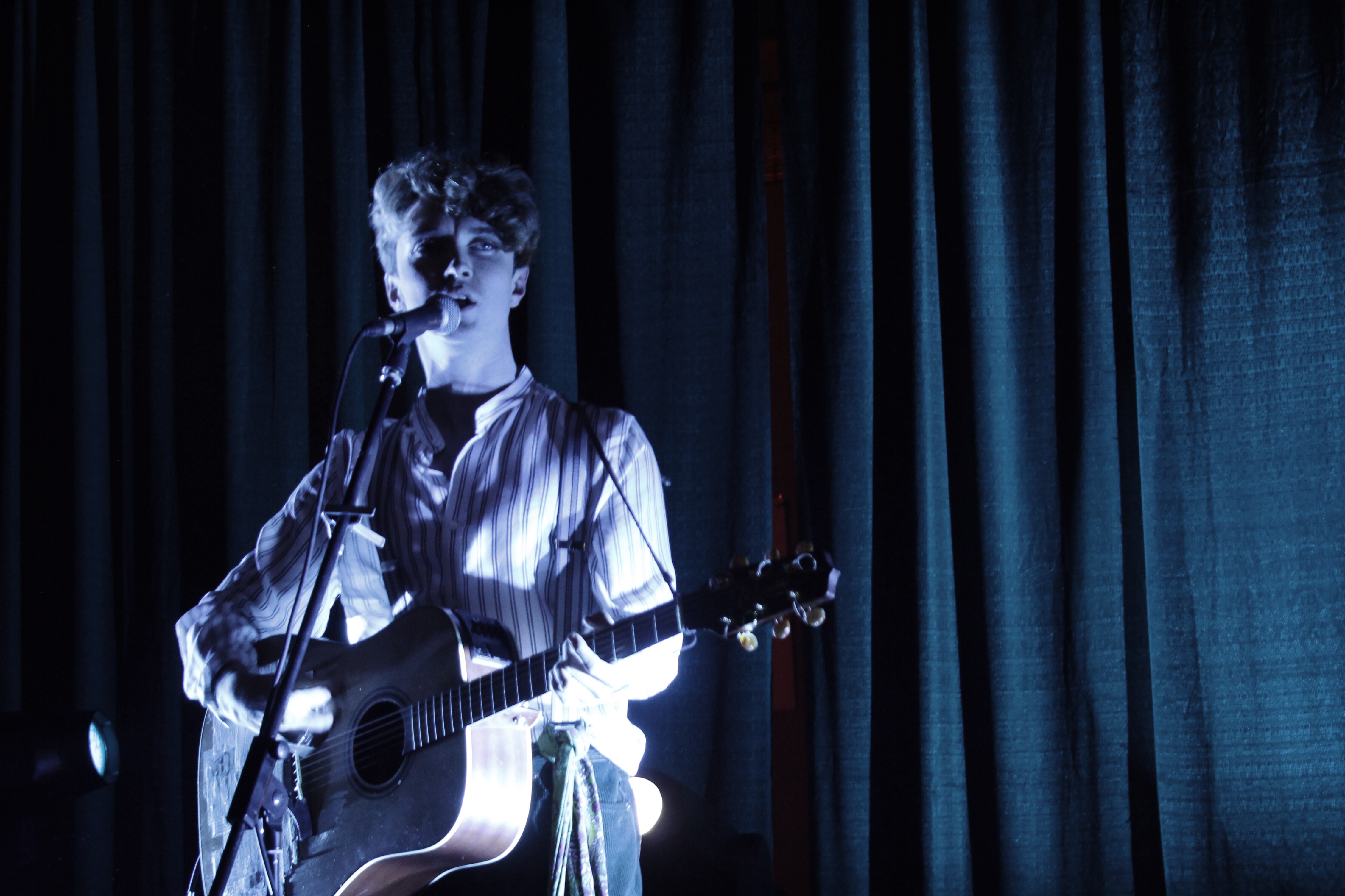
The Warehouse Stage of the RDS is sparsely lit and full of sound as Welsh electropop troubadour Gwenno floats around the stage. The subject of her music is abstract and often eclectic – she tells the crowd one song is based on a 1980s sci-fi novel, while another is based on an 18th-century German poem. At one point, she asks the crowd to repeat after her a phrase in Cornish about cheese. She commands the stage authoritatively, whimsical in white, and often kicks into moments of madness, creating abrasive walls of sound with her three-piece band, all swelling as she throws her body around the stage, hinged to her tambourine.
Junior Brother is up next. He paces up and down the Industries Hall, hopping and skipping to warm up. The Hall is a more elegant setting than the Warehouse, decked out in crimson and wood with Celtic symbols projected onto the ceiling. However, the stage lies at the end of the hall, away from the bustle of the picnic-style tables, and so the crowd is slow to gather for the Killarney musician. He plays guitar in a virtuosic, John Martyn-esque style with one foot on a tambourine, adding a pulse to his laments. He sings with an unmistakable Kerry lilt and seems demented at times, possessed by the spirits of a rural yet modern Ireland; his falsetto is impressive, expressive and firm. His atypical progressions force the crowd into anticipation – his vocal escapades unpredictable and passionate. “No Snitch” is sung with unparalleled intensity, and his closer “Full of Wine”, a song described fondly as “a love song about the drink”, is reminiscent of the giants of folk as Junior Brother soars like one of the Buckleys with the words of John B Keane.

Friendly Fires, unfortunately, runs into technical issues throughout their set. They also do not have the crowd for their brand of dance music and, therefore, fall flat, the only highlight being frontman Ed Macfarlane’s dancing. David Keenan, however, commands his crowd with experience and brilliance. He calls forth the occupants of the Industry Hall, and they wander towards him in trance, mystified by his poetry and prose. His style is refined and self-assured – it’s hard to imagine Keenan ever hitting a wrong note as if those sounds don’t reside within him. He gives his absolute all, emotions pouring out to the front row and definitively reaching the back. He pays tribute to the late John Reynolds, organiser of Metropolis, with a beautiful rendition of Leonard Cohen’s “So Long Marianne”; the crowd sings in unison as if he were the Cohen of modern Ireland.
The headliner of the set, indie-folk band Villagers, closes out the evening as if running a victory lap. The songs from their critically acclaimed The Art of Pretending to Swim translate energetically to the stage, horn section booming and crowd belting along with them. Frontman Conor O’Brien is emotional at the crowd’s response while the band demonstrates why they are this year’s headliners with a pitch-perfect, airtight set that inspires tired voices and happy faces. The size of the crowd may not have been what Metropolis hoped for its opening night, but the performances most certainly were.






